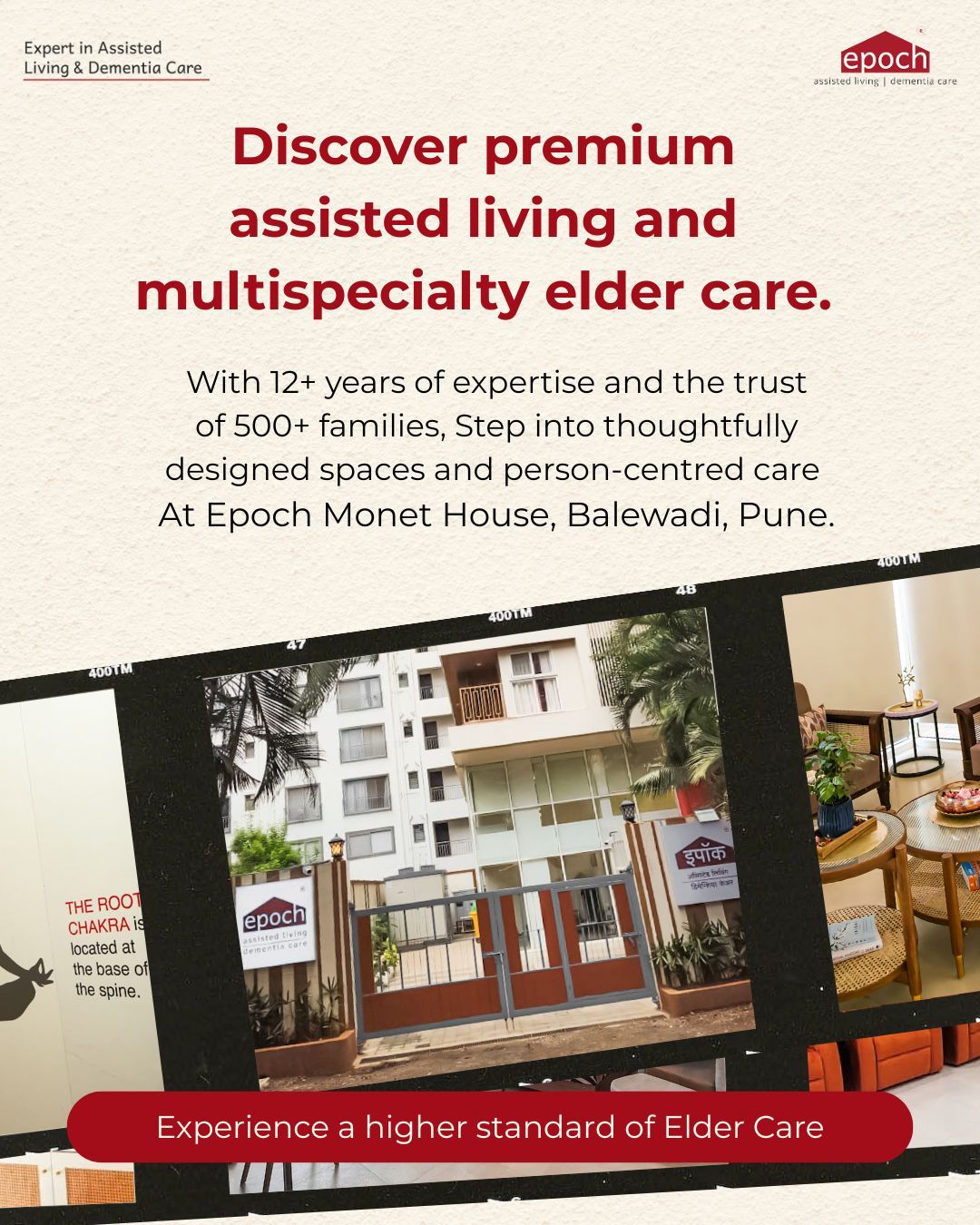In the 21st century, terms like ‘assisted living,’ ‘retirement homes,’ or ‘old age homes’ for the elderly are no longer unfamiliar, yet they carry significant emotional weight and require careful decision-making. We usually begin to consider such homes for elders when daily life becomes challenging for them, when they need increased assistance with their daily routines, or when they develop a medical condition that necessitates professional care. In India, where caring for aging parents is deeply ingrained in our culture, there has traditionally been some taboo and discomfort surrounding the idea of placing loved ones in old age homes. When the time comes to make this decision, it is often difficult. Even though it may be the most suitable care option and a step towards enhancing their quality of life, feelings of guilt and societal pressures frequently lead to second thoughts.
However, the landscape is rapidly evolving, with more people in India opting for professional care and assisted living facilities, though it remains a significant decision. A crucial step in this decision-making process is to start with an open and honest conversation with the parent if they are able, to address any concerns they may have. For elders with dementia, this discussion must be carefully planned and should never begin without consulting an expert or the team from the dementia care facility. Other important factors that need to be considered include selecting the right type of residential place, determining the level of care required, managing finances, ensuring a smooth transition, and adjusting to lifestyle changes.
Considerations While Choosing Assisted Living or Dementia Care Facility
1. Location of the Assisted Living Facility:
Location is key. Ideally, the assisted living home should be situated in a peaceful, quiet neighborhood and be close to a hospital for quick access to emergency care. The facility should be spacious with thoughtful elder-friendly infrastructure, with good ventilation and ample sunlight. It’s also beneficial for the elderly to visit the home themselves and provide their input or approval before a decision is made.
2. Planning Finances:
Good assisted living homes often come at a price, whether through a substantial upfront deposit or service fees. It’s important to discuss finances with all concerned family members, including siblings and spouses, so the responsibility is shared. If the elderly wish to cover the expenses themselves, everything should be clearly explained to them to avoid confusion and align expectations. Planning is crucial as this can be financially draining. For elderly individuals with dementia, it is not advisable to involve them in financial planning to avoid creating a stressful situation.
3. Medical History & Assessment:
In homes that offer assisted living in India, a medical assessment is typically conducted by the nursing team. This involves gathering the elderly’s medical history, and reviewing all relevant documents such as recent prescriptions, blood tests, and investigations. It’s crucial to provide all medical details and any existing insurance information that might be required during hospitalization. Medication records should be clearly explained. Preparing a written medical history beforehand ensures that no important details are overlooked.
4. Handover and Information:
Providing as much information as possible about the elderly is critical for creating a detailed care plan, ensuring a smooth move-in process, and minimizing changes during the transition. Important handover points include:
- Favorite foods and preferences
- Leisure activities, spiritual and religious needs
- Daily routine preferences
- Hobbies or interests such as favorite music, books, movies, actors, etc.
- Details about their childhood, such as where they were born and where they went to school.
5. Transition Story for Elders with Dementia:
Dementia can impair a person’s decision-making abilities, so it’s essential to create a thoughtful narrative and reasoning for why they are moving out of their home. Consistency is key—everyone involved in the transition, including family members and staff, should deliver the same message to the elderly. Key elements for a successful move include a detailed personal history, understanding daily routine preferences, and customizing their new room to mirror their previous one. It typically takes a few months for the elderly to adjust to their new home, but as they begin to engage in personalized activities and follow a familiar routine, they often become more active, engaged, and content. Interaction with the team, facility nurses, caregivers, and other residents can foster a sense of well-being, potentially making them more socially active than they were before.
At Epoch, we follow a person-centered care approach to help individuals accept their new home and feel as comfortable as they did in their own homes, engaging in activities they used to enjoy. Small steps taken by the team at home, along with the support of family members, can make the move a smooth, comfortable process and ensure that the decision is the right one.
FAQ’s
1. What is a home for assisted living?
Assisted living is a type of residential care designed for seniors who need help with daily activities but do not require intensive medical care. It combines housing with supportive services to help residents maintain some level of independence while receiving assistance with tasks such as bathing, dressing, medication management etc. Assisted living facilities provide a range of services, including social activities, personal care, and sometimes medical care, in a community setting that aims to enhance the quality of life for the elderly.
2. How to ease the transition to assisted living?
To ease the transition to assisted living, start with open communication and involve the senior in decisions about their new home. Arrange visits to the facility beforehand and personalize their space with familiar items. Establish a routine similar to their previous one and encourage participation in engagement activities. Provide emotional support, consult professionals for medical needs, and be patient as they adjust to their new environment.
3. How long does it take for someone to adjust to assisted living?
The adjustment period to assisted living varies for each individual, but it generally takes a few weeks to a few months. During this time, the person may need to adapt to new routines, make social connections, and settle into their new environment. Factors such as previous experiences, personal adaptability, and the level of support from family and staff can influence how quickly they feel comfortable and at home.
4. What to say to someone moving into assisted living?
When speaking to someone moving into assisted living, consider offering reassurance about the positive aspects of the move, such as improved support and opportunities for social engagement. Acknowledge the emotional challenge of the transition, reassure them of your ongoing support, and encourage them to take their time adjusting to their new environment.













